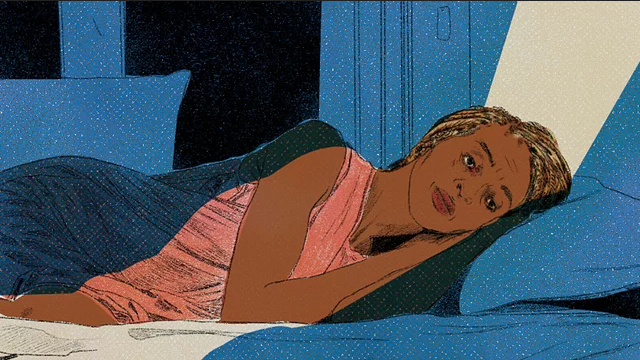
Chatelaineasked our readers to share their biggest questions and concerns about menopause, and wow, did you ever! We received more than 200 responses from people aged 27 to 75. What you told us informed the issues we tackled.
“I’ve tried everything—no caffeine, no electronics, running 10 miles—but none of it works. When will this no-sleep thing end?”
—Michelle, 55, Port Coquitlam, B.C.
Maybe you woke up at 2 a.m. drenched in sweat, and by the time you cooled down and changed your damp sheets, falling asleep again proved impossible. Maybe your partner shook you because your snoring woke them up, then they drifted off while you stared at the ceiling. Or maybe you just never settled down after climbing under the covers and ended up awake until dawn worrying about, well, everything.
There are endless flavours of age-related insomnia
, and not one is as delicious as a full night’s sleep. But it can be hard to know whether your sleepless nights are being caused by persnickety hormones or other culprits, such as mysterious aches or everyday stresses.
“Just from an aging perspective, your sleep cycles
are going to change,” says Dr. Natasha Deshwal, director of the Bedford Basin Women’s Health Clinic in Bedford, N.S. “Perimenopause and menopause can be a part of it, but I don’t think we should say that’s everything.” Our circadian rhythms, or 24-hour sleep-and-wake cycle, shift throughout our lives, which is why teens hit snooze on their alarms all morning and why grey hairs often arrive alongside dawn awakenings.
Deshwal says the first step is pinpointing the cause of your sleeplessness. Menopause hormone therapy
can’t fix everything, and Canadian doctors can typically only prescribe it if night sweats or hot flashes
are noticeably reducing your quality of life. Sleep medications, meanwhile, can be habit-forming.
If snoring is an issue, sleep apnea
—obstructed breathing that prevents sufferers from falling into a deep sleep—could be the root cause. It can affect our sleep as we age, says Deshwal, as “the tissues within our neck and underneath our jaw become more floppy.” Mouth guards or airway machines are usually what’s needed.
Joint pain is another age-related complaint. While that’s an issue related to decreasing estrogen, anti-inflammatory medication and exercise are likely your best bet.
Then there’s the one thing no one can avoid in midlife, especially during menopause: stress. If stress affects your sleep, Deshwal suggests cognitive behavioural therapy for insomnia. It’s a form of drug-free therapy that focuses on changing your mindset about sleep to relieve your anxiety related to it.
As you narrow down what your sleep issue might be, Deshwal suggests talking to your doctor
before experimenting with solutions. It helps to write your questions down beforehand and take all the time and space you need to get answers.